Once infected with herpes, you have the virus for the rest of your life. There are two types of the virus – one that triggers cold sores and the other that cause blisters on your genitals. While being infected can cause concern, there are ways to cope with breakouts and even help prevent them. Your doctor may prescribe medicine designed to manage the virus, but your diet also plays an important role in preventing herpes outbreaks.
Foods to Avoid with Herpes
1. Arginine-Rich Foods

Arginine-high foods encourage the growth of the herpes virus as it is a source of food for the disease. It promotes the formation of the blisters and sore associated with the virus. In order to avoid stimulating an outbreak, you should avoid foods high in arginine. Such foods include:
- Coconut
- Nuts
- Brown rice
- Gelatin
- Peanut butter
- Seeds
- Oats
- Dried beans
- Lentils
- Wheat germ
2. Caffeine Beverages and Foods

Foods to avoid with herpes include those containing caffeine. Caffeine is a natural stimulate that causes your body’s systems to work harder. When it runs its course, you are tired and in a weakened state. This makes you more vulnerable to viruses and allows herpes outbreaks. Caffeine-rich foods and drinks to skip include:
- Coffee
- Tea
- Soda
- Cappuccino
- Ice cream
- Frozen yogurt
- Cake
- Cookies
3. Highly Acidic Drinks and Foods
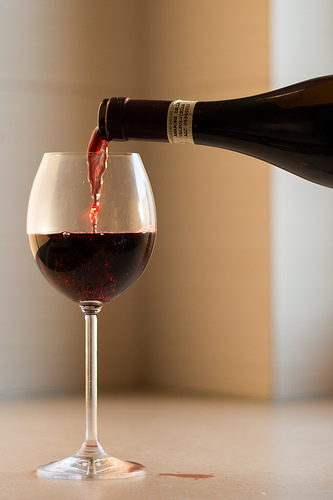
Foods rich in acidity can make you susceptible to illness, including viruses because they affect your immune system. They also support arginine, which can lead to herpes outbreaks. Avoid acidic foods such as:
- Excessive red meat
- Alcohol
- Junk food
- Processed food
- White flour
- Caffeine
- Artificial sweeteners
- Food additives
4. Refined Carbohydrates
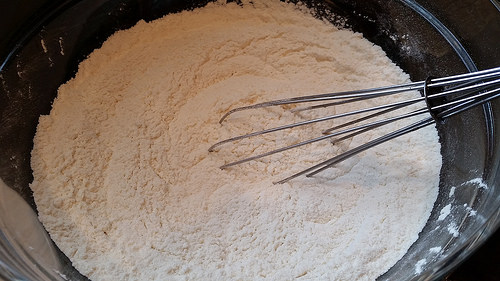
Pasta, baked goods and high-fructose drinks are full of refined carbohydrates, which weaken your immune system and make you susceptible to a herpes breakout. Because sugar contradicts vitamin C, it affects the way it fights infection.
5. Artificial Sweeteners
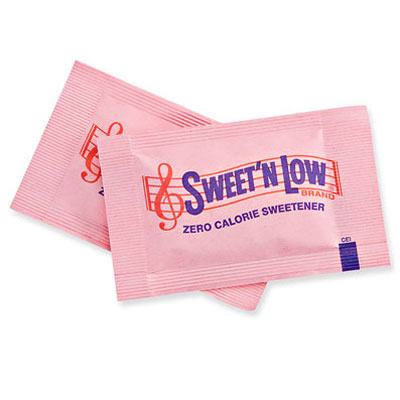
Research has uncovered evidence that artificial sweeteners may induce a herpes breakout in some individuals. Because of this, if you are infected with the virus, you should avoid "sugar free" or "diet" foods and beverages such as sodas, sugar substitutes, and some toothpaste as they usually contain artificial sweeteners. Read the label carefully to avoid foods and drinks that contain any ‘sweetener’ and the ingredients listed below:
- Aspartame (NutraSweet, Equal)
- Saccharin (Sweet’N Low)
- Sorbitol
- Sucralose (Altern, Splenda)
- Ingredients labeled sweetener
6. Processed and Junk Food
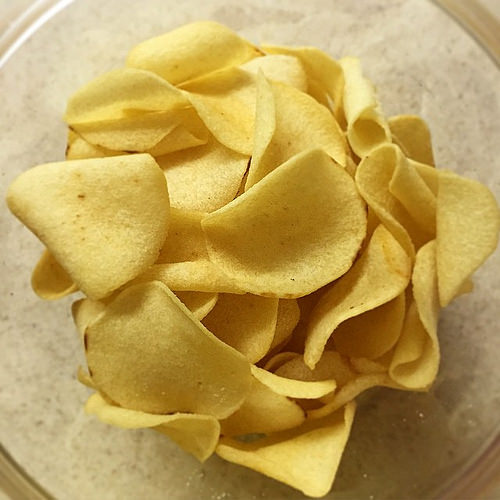
Occasionally eating processed or junk food should not hurt you, but it is one of the foods to avoid with herpes. It is best to stay away from white bread, packaged foods, sugary foods, fried foods, artificial preservatives, artificial flavors, junk foods, processed foods and artificial colors. Foods high in saturated animal fat and trans-fatty acids should be avoided as well:
- Frozen dinners
- Potato chips
- Margarine
- Fast food
Additional Dietary Tips for Herpes
1. Eat Foods Good for Skin
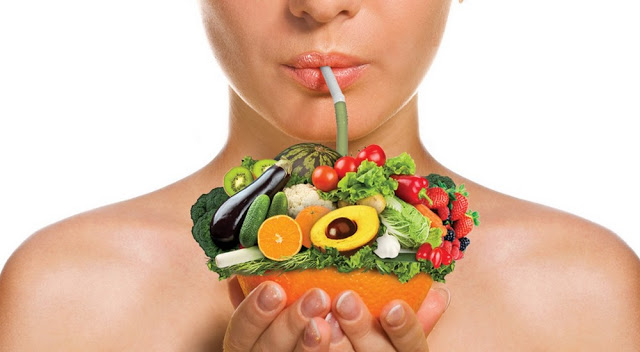
By eating foods that are beneficial to your skin, you can recover from herpes outbreaks faster. You want to make sure you get enough vitamin C, zinc, lysine and bioflavonoids to nourish your system, making it stronger against viruses and infections. They can also help prevent blisters or sores from forming. Foods rich in these nutrients include:
- Citrus fruit
- Cauliflower and broccoli
- Strawberries
- Parsley
- Leafy vegetables
- Papaya
- Berries
- Brightly colored fruits
- Bell peppers
- Brussels sprouts
- Grape juice
- Black tea
- Certain red clover varieties
- Rosehips
- Legumes
- Beans
- Lentils
- Seafood
- Pumpkin seeds
- Dairy
- Wholegrain cereals
2. Eat Plenty of Cruciferous Vegetables
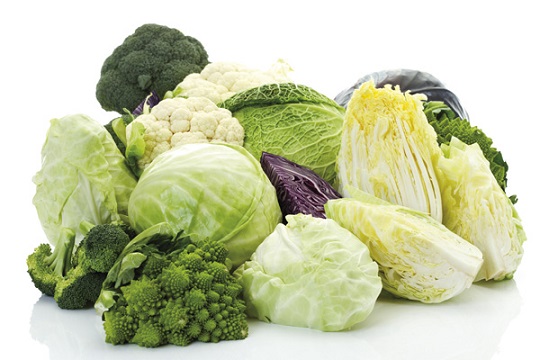
There are plenty of foods to avoid with herpes but cruciferous vegetables are not one of them. High in indole-3-carbinol (I3C), foods with this compound may hinder the virus by interfering with its reproduction. Studies are showing significant evidence supporting this finding. Foods include:
- Cabbage
- Broccoli
- Kale
- Brussels sprouts
- Cauliflower
3. Eat Stress-Relieving Foods
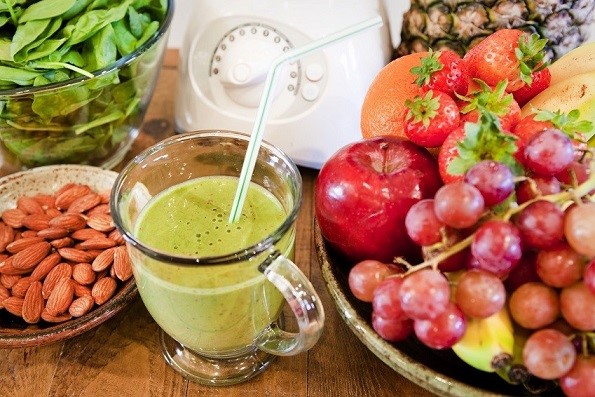
Research has found that stress weakens the body’s immune system, making it more susceptible to illness. It is important to de-stress and relax whenever possible. Certain foods and nutrients can help your body fight tension and anxiety, thus warding off a herpes outbreak. Foods and drinks high in vitamin B and magnesium can help your body bounce back from stressful situations quicker. If you decide to take a supplement, make sure it is in the form of a vitamin B complex so you keep the nutrients in balance. The complex includes B1, B2, B6, B9 and B12. They help your body produce serotonin, which is the hormone that relaxes you and puts you at ease. Foods that can help you de-stress include:
- Green leafy vegetables
- Brown rice
- Mushrooms
- Bananas
- Soy
- Brewer’s yeast
- Turkey
- Salmon
- Barley
- Tuna
- Eggs
- Dairy
4. Eat Antioxidant-Rich Foods
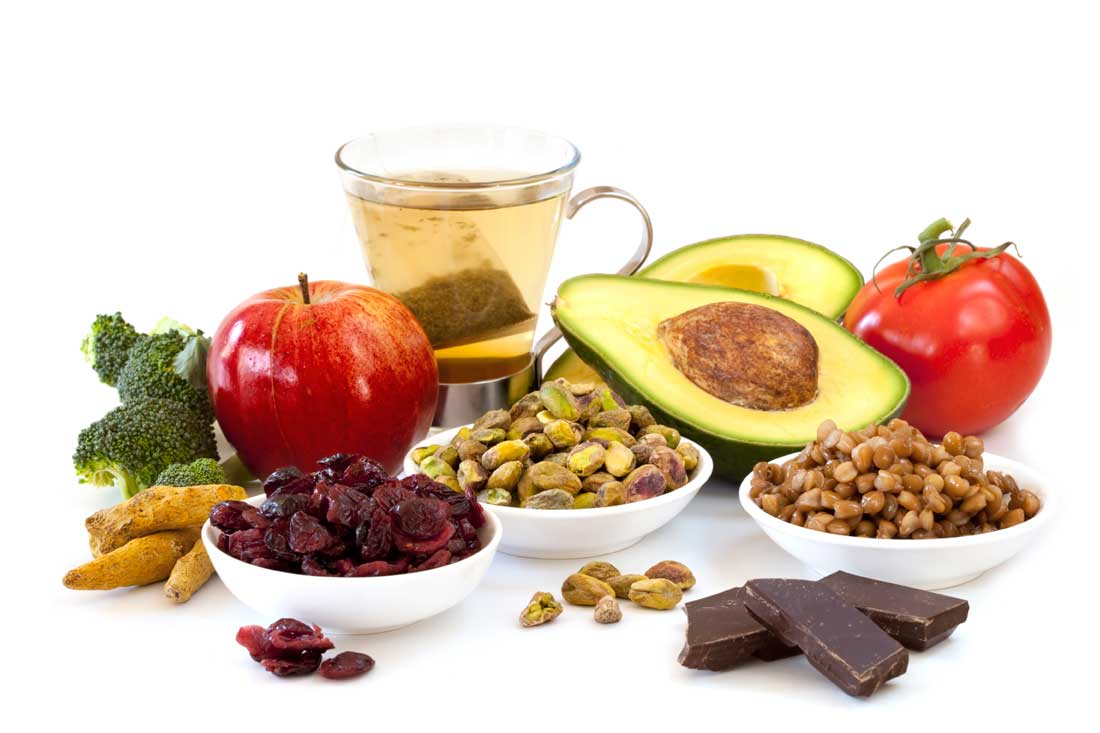
Antioxidants fight free radicals in your body, keeping them from damaging your cells. Free radicals are produced by toxins and chemicals in the environment and even your food. They cause the deterioration and aging of your body. Foods rich in antioxidants help fight infections, including the herpes virus. Consider adding some of these to your diet:
- Berries
- Spinach
- Kale
- Apricots and prunes
- Lemon
- Broccoli
- Artichokes
- Brussel sprouts
- Chile peppers
- Beets
- Tomatoes
- Ginger
- Garlic
- Green tea
- Parsley
- Carrots
- Red grapes
- Whole grains
- Coconut oil
- Barley grass
- Reishi or shitaki mushrooms
- Goji berries
- Spirulina
5. Drink Purified and Alkaline Water
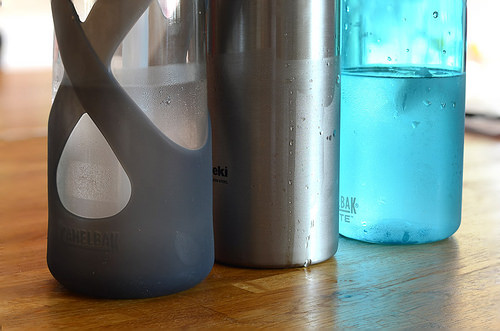
Water is essential to life. Not only should you drink plenty of it, you want to make sure it is not contaminated with deadly chemicals or germs. Chlorine is needed to filter out things that are bad for us, but it can be removed before we drink the water. There are several different ways to purify your water. Carbon filters can be fitted to your kitchen tap. Reverse-osmosis filters can be connected to your water system. However, along with removing minerals that may be bad for you, it removes the good ones too. You should also drink alkaline water. It assists your body in the fight against free radicals, as well as provides other benefits. If you can’t get to filtered water, add fresh lemon or lime juice to a glass and drink in the morning and at night.
